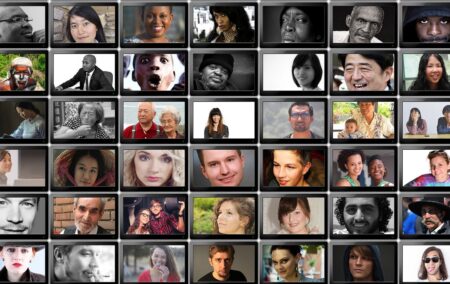‘He walked the easy path of indifference to the uplands of tolerance.’ Thus wrote Winston Churchill of King Charles II, who did more than any other man in Britain to promote religious freedom – by caring nothing about religion. He thought religion was tedious nonsense. Is it possible today to promote racial tolerance by becoming indifferent to race?
After the death of Cromwell, who was a revolutionary with fierce religious convictions, the monarchy was restored in 1660 and the crown placed on the head of Charles II, who had no religious convictions at all. Whereas Cromwell had stoked religious hatred with his fervour, Charles II brought religious peace by being too lazy to bother about it. (He preferred food, drink and women, with the emphasis on the last.) It needs a lot of energy to maintain hatred. Can we overcome racial hatred by laziness and indifference?
From 1642 to 1658, the British Isles were racked with the bloodshed and hatred of the Civil War, caused fundamentally by religious differences. In the British Isles today, nobody cares or even knows about these religious differences. Few care much about religion at all. The single exception is Northern Ireland, and there it is becoming more and more difficult to sustain hatred between Catholics and Protestants. The entire Northern Ireland problem, which has cost so much blood, would fall away if the few zealots on each side would become as indifferent to religion as the great majority of their countrymen.
Racial differences, unlike religious differences, have a biological basis. The races are genetically slightly different, as you can see by skin colour, DNA and other minor variations. Humans, like many other animals, have a natural tendency to group themselves into hostile camps based on any suitable difference they can see or invent. Religious and racial differences are often a cover for fighting over other reasons such as power, money, territory or jealousy. Race has a more physical reason for antagonism than religion but, from a scientific view, the reason is equally silly.
Would have seemed strange
The racial bigotry of our forebears seems as absurd as their religious bigotry. Fifty years ago in South Africa, it would have seemed strange for a group of black and white people to come together in a social or business gathering, and their differences would have seemed enormous. Today it seems normal and you hardly notice the differences unless some zealot, black or white, insists on pointing them out.
The primary cause of the ‘Black Lives Matter’ (BLM) campaign in the United States (US) was the fear that racial differences were fading away, jeopardising the careers of the racial justice warriors. The purpose of BLM is to put race back on centre stage and foster the belief that white America is uniquely evil and black Americans are helpless, doomed victims. BLM has put an awful lot of energy into this campaign, looting and rioting in US cities, and has been successful. Rich, privileged, powerful white Democrat politicians just love BLM and agree that all other whites, especially Republicans and police, are racist monsters. (It is quite extraordinary that in this month’s Democratic National Convention, there wasn’t a mention of the violent chaos in the inner cities)
Black Americans are more prosperous than in the past and free of the horrid racist laws that hobbled them. Materially and legally, they’ve never had it so good. They have problems with high crime rates, inner-city poverty and, worst of all, the failure of the black family. I believe that by doing nothing very much except to encourage black education and enterprise, and improve policing and municipal services, most of these problems would fade away. Natural progress will improve further the lot of black people and reduce racial antagonism. This happy prospect horrifies BLM, and they have fought like tigers to resist it.
Racial hatred is carefully nurtured
In South Africa, racial hatred is carefully nurtured by the ruling power for its own good. Everyone knows that affirmative action, BEE and employment equity stir up racial antagonism and harm poor black people, but the African National Congress (ANC) imposes them on us for political ends and because racial antagonism is central to its ideology. The ANC elite condemns poor black children to schools with affirmative action black teachers and sends its own children to schools with white teachers appointed on merit, and then complains loudly about racism in the white schools. (Racism in the Model-C or private schools in Cape Town is the regular headline in the Cape Times and Cape Argus, both owned by Iqbal Surve, always anxious to curry favour with the ANC.)
‘I’ve forgotten why we’re meant to hate each other. Please remind me.’ Being too lazy to bother much about race or religion, I sometimes find myself thinking this when I’m among people of different colours and a racial activist gets deeply hurt over something or another.
Hatred is hard work. Can’t we get a bit lazy and start liking each other – or at least being indifferent to each other?
[Picture: Gerd Altmann from Pixabay]
The views of the writer are not necessarily the views of the Daily Friend or the IRR
If you like what you have just read, subscribe to the Daily Friend

